Interview with Marco Barbieri(M-Theory Records,ex-Century Media, Metal Blade, Nuclear Blast Records)
Marco Barbieri is someone I have known in what it feels like is forever. Through our trading fanzine days, his working at various big metal indie labels and now with his starting his own record label. Please enjoy this fantastic interview I did with him. Take it away Marco:
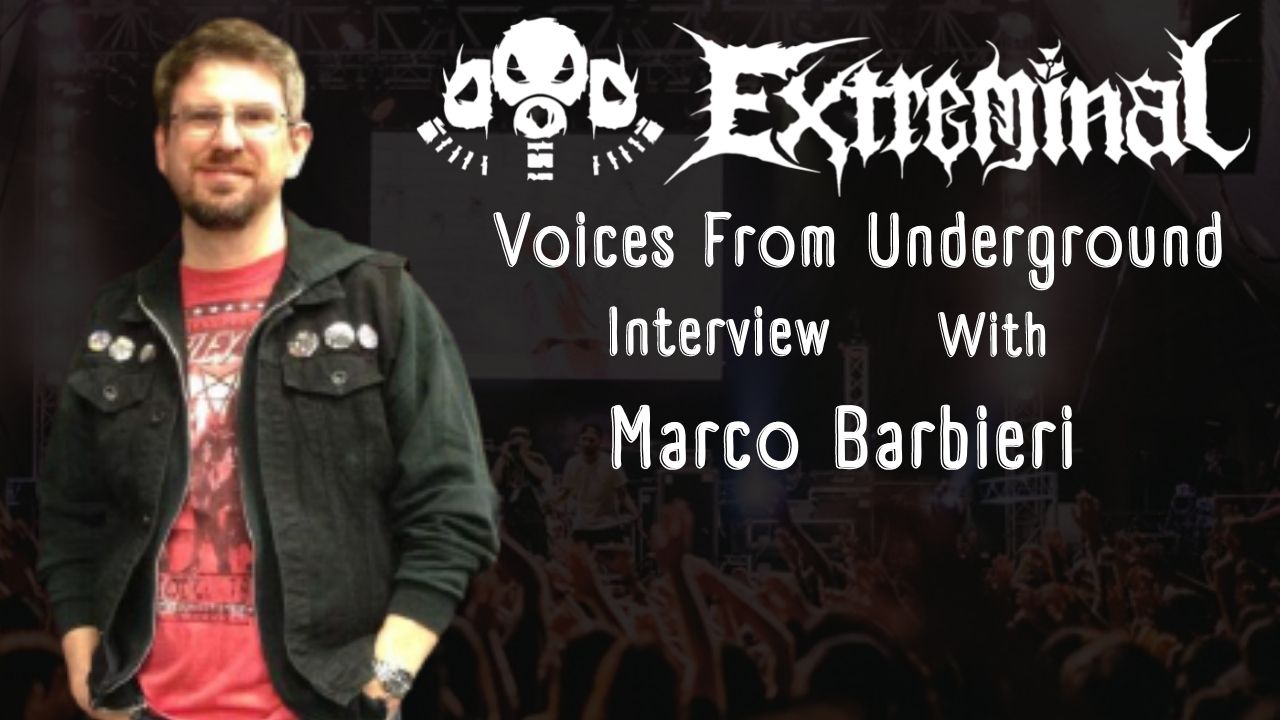
Now with this interview, I’m mostly going to be concentrating on your label that you started, because if we did your whole history the interview would be 200 questions ha ha.
So how did you end up starting up your fanzine “No Glam Fags”, which later on saw a name change to “Ill Literature”?
MB: Thanks for the opportunity, Chris.
I started the zine with my college roommate in 1988. I moved to Stockton, CA a year earlier from Las Vegas to attend the University of the Pacific and study music business/entertainment management. During my freshman year, we started driving out to San Francisco, Oakland and Berkeley attending gigs and being part of the Bay Area metal scene. I also started managing a Vegas band, Pestilence (later The Horde of Torment), and mailing out their first demo, Infected, to zines for coverage. We started getting all these photocopied DIY zines from around the world and were inspired to start our own, especially as at the time there wasn’t an active one in the Bay. The idea behind the name was because at the time all the easily obtainable mags were filled with commercial hard rock bands and this ‘zine didn’t include any = No Glam Fags. Bold, brash and immediate. And obviously not as impolitically correct in 1989. Ha.
I did change the name to Ill Literature as circulation and distribution increased in the mid-‘90s, plus it just wasn’t a relative name anymore as the scene had changed and it wasn’t the hair bands that littered the pages of mainstream music mags.
How many issues did you do of the 2 of them combined and have you ever thought of getting them released in a book form as a few other fanzines have had that happen over the years?
MB: There are 7 issues under the NGF name, and 15 more using Ill Literature. Sometimes I wish I had chosen a more immediate name than Ill Literature but the metal was in a tailspin and heavy music was all over the place. I was printing on average 15,000 copies and trying to get into as many record stores, book stores and newsstands as possible. I tried to be overly clever with the play on words but in the end, it was just supposed to be “sick reading material’ and I tried to cover all facets of the genre from death and black metal to traditional and alternative metal. (Some back issues are available if you scroll down at www.m-theoryaudio.com/store)
I am a fan of the book format of zines like Slayer, Isten and others and it might be fun to someday collect, especially those early issues or at least the best parts of the entire adventure.
Now you also branched out into managing as well. Which bands did you manage and how did that work out for you?
MB: I read about Las Vegas’ Pestilence right before Christmas break freshman year in an issue of Kerrang! I’d never heard of the band and knew when I went home for the Holidays that I’d have to seek them out. I picked up a copy of their ‘Infected’ demo at the local metal store, Record Gallery, loved their Slayer – Dark Angel vibe and called the number inside and befriended them which led to circulating demos in the Bay Area, to dubbing copies and mailing them out for underground press and radio play and eventually managing the band and encouraging them to move to the Bay Area, where they changed their name to The Horde of Torment and became one of the top local unsigned bands playing a variety of great shows and releasing two more demos before eventually breaking up.
I got to know the Epidemic guys simply from selling my zine outside The Omni in Oakland. They gave me their first demo, Immortal Minority, which I dug and reviewed. Similar situation. A friendship ensued, and when they issued their ‘Demo ‘89’ I started promoting it in the underground and booking their local shows. Epidemic eventually signed to Metal Blade and released a couple of underrated records in the early ‘90s.
Jumping ahead – after 17 years working at labels I returned home to Las Vegas and fell back into band management and over the past 14 years have worked with Warbringer, Exmortus, Hatchet, Flotsam and Jetsam, Abigail Williams, Bonded By Blood, Decrepit Birth and Pathology. But those experiences are all different interviews. Ha.
You also worked at Metal Blade Records. How long were you there for and what exactly did you do there? If you did at one point sign any bands, which bands were they?
MB: My goal going to school was to eventually move to LA and work for a label. It was a dream come true when the opportunity came up to interview. I grew up on Metal Blade and was obsessed with the label and its bands during the ‘80s. It was the perfect starting point for me. I was in my senior year. I had been doing the zine, managing bands and knew press and some A+R people at the labels. I heard Metal Blade’s publicist was moving to a major and her assistant tipped me off about a potential opening as he moved up to replace her and now needed an assistant. I interviewed for the job during Thanksgiving break and a couple of weeks later learned I got it. The only issue I still had one semester to go. I petitioned my school to let me take the job and thankfully I only had some GE credits remaining so my final semester I attended UC Northridge at nights and on weekends so I could transfer my credits and graduate with my class.
6 months after I started Brian asked me if I’d screen the demos that came into the office, so every night home and every morning to the office for the next four years I listened to demos on the hour commute. I did sign some bands while there, including Skrew, Broken Hope, Paradise Lost, Desultory, Crisis, Decoryah and I put together Metal Massacre XII.
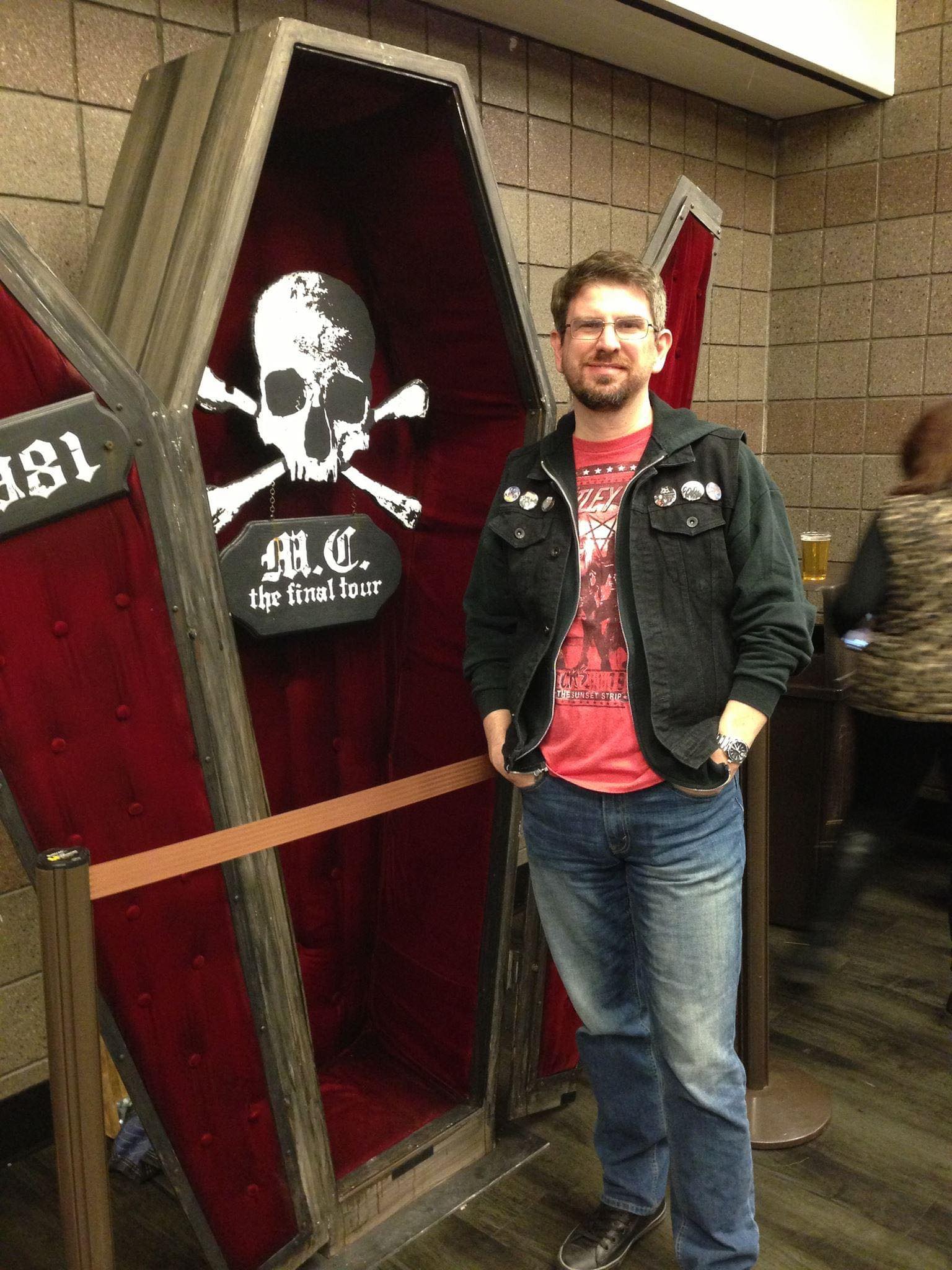
You also had a stint at Nuclear Blast Records. How long were you there for and what did you do?
MB: My time with Nuclear Blast was while I was at Century Media. I left Metal Blade in 1995 to join CM. At the time everyone told me I was crazy going to a smaller label but I believed in the potential, ownership and my friends Ula Gehret and Borivoj Krgin had moved out from the east coast a few months earlier to work there. I really dug the European signings like Sentenced, Samael, The Gathering, Tiamat, Moonspell – all of which sounded fresh and exciting then. I felt I had gone as far as I could at Metal Blade, as I was the main publicist and doing A+R by that time, but the step back had a lot of opportunities. Within 6 months I was running Century Media and we developed the label over the next years into quite a successful powerhouse. In addition to the aforementioned European signings, there were developing US bands like Iced Earth, Eyehategod and new signings like Stuck Mojo, Nevermore and Strapping Young Lad, as well as licenses from Emperor, Opeth, Nightwish, Blind Guardian as well as my first two signings being Cryptopsy and Krisiun.
In 1999 Nuclear Blast was complaining about their years of financial loss in the US and CM’s owners bragged they were making money and had minimal headaches with a good US team and convinced Markus Steiger to give us the license to promote and distribute Nuclear Blast in N. America, so I oversaw that label as well into 2007 when I left CM. In my time there we did similar label deals with Noise, Combat, Inside Out Music and Olympic Recordings.
So now you left CA and returned back to Las Vegas. What events led to you deciding to work on releasing the Pap smear demos onto CD? At the time was this just going to be a one-time-only thing for you? How did this release sell, I imagine pretty good as you had plenty of experience prior to this release coming out? Is this release still for sale?
MB: I quit in 2007 after 17 years working for labels in L.A. At the time I felt like things were plateauing and it was the time when record chains like Tower, Wherehouse and Virgin were closing stores, magazines were going online and people were downloading music illegally. I felt like I saw the writing on the wall and I should shift my priorities to my family. I worked so many hours at the office, after which were meetings and shows to attend that I was missing the chance to see my son grow up. Plus, my parents were in Vegas and always wanted me to take a place in the family business. In 2007 I thought I threw in the towel and would rest on my legacy and change gears for more of family life and spend my days working with property management. While some of that is true, music is my first love and I wake every morning and go to bed every night thinking about it. Also, your friends are your friends and opportunities kept coming my way. My parents realized I’d only be happy if I could balance both and that’s what I’ve done for the last 14 years. So between first counselling Century Media and doing some reissues and compilations for them, to managing the bands discussed, starting a music publishing company and promoting almost 50 concerts in Vegas you could say I kept myself entertained and involved.
Oh, and to answer your question – yes, I met up with my old friends in the local band Pap smear. These guys were gods to me when I was in high school and I loved their two demos. Reacquainting myself with singer Tony Costanza and guitarists Bryan Capozzoli and Eric Thompson I offered to reissue these tapes onto CD, which became ‘Music To Kill By’ that also includes a DVD of live shows. It was the first and only release for a new label dubbed M-Theory Audio. We pressed up 1000 copies and did it in cooperation with an east coast label that had also coincidentally expressed interest, so they got a few hundred copies but shortly after went bust and never reimbursed me for their share. It was totally intended to be underground and DIY and it’s been slowly and steadily selling since and there’s about 50 copies leftover.
Over the years the M-Theory Audio name was used on a couple more one-off releases. I was working with a Sacramento-area thrash band called Blessed Curse through a music publishing deal. The band got a European label, Cyclone Empire Records, and did a self-titled album, but with no US distribution, I released it in cooperation with them on M-Theory Audio. And Apothesary – Sensory Overload EP was another music publishing client who wanted to spruce up their demo and felt that having a label association would make it look more pro so they asked about using the M-Theory logo on it. Eventually, I did follow-up releases for both Blessed Curse and Apothesary when I officially (re)launched M-Theory Audio. I also planned to release the demo anthologies of The Horde of Torment and Epidemic, but never got around to it and when Divebomb expressed interest in each I just licensed the idea to them and they did a fabulous job with both of those collections.
After the demo release, you ended up working at Century Media. What was your time like there?
MB: Yes, at the end of 2013 Century Media’s Robert Kampf reached out and explained that the company had been losing money, staff morale was low and they had lost their direction and asked me to come back to my President position and try to return them to the bread-and-butter metal business, train the staff and try and make them profitable again. Initially, I declined because I just couldn’t up and leave all in Vegas but then when speaking to my wife and my best friend they noticed the conflict in me and told me to ask if part-time was possible. Robert said half my time was better than none and for the next year-and-a-half I drove back and forth every other week from Vegas to LA to work in their office while still doing my real estate duties and band management. It was a lot of juggling but it was also a lot of fun to be in the environment I loved and I felt fulfilled again. We turned around the roster, staff enthusiasm improved, marketing became more effective and we were developing bands again and making the company money. So much so that after 12 months Sony expressed interest in purchasing CM, which led to a due diligence process and a lot of confusion. In March of 2015, my wife was pregnant, my mother passed suddenly, and my father, therefore, needed more time from me to help with the business. I knew my days were numbered and were just thankful for the chance at another round.
At this point, you went on to manage a few bands and helped with putting shows on. How much fun was this for you?
MB: Promoting shows was prior to my CM return. At first, it was really fun but it grew to become burdensome and of the almost 50 shows I produced only a handful made me any money so I basically felt I was throwing a party for everyone but myself. Vegas is a small market and with the venues essentially being 21+ bars with no-frill stages and sound it limits the audience and experience and club owners just want you to put on as many locals and run the bills as late as possible so they can continue selling drinks. I started because there was a void when I moved back and a lot of that mid-level touring didn’t come through so I brought bands like Deicide, Death Angel, DRI, Raven, Pentagram, etc through town.
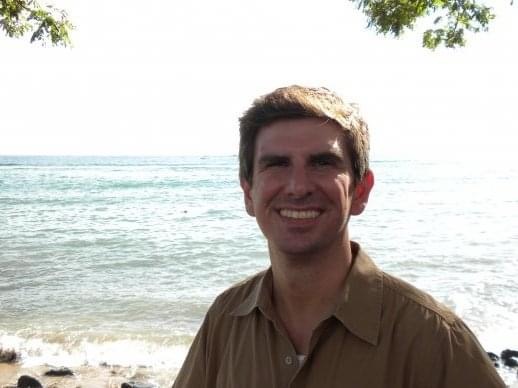
Now when exactly did the idea form in your head to branch off and start off your own label? How did you come up with the label name?
MB: Working at labels I often had bands on my radar before signing them and watched their progression, connection to an audience and getting to know them personally before signing them. So I had all these bands that I thought had promise while working at CM the second time, such as Immortal Guardian, Novareign, Helsott, Graveshadow, Sicocis and Blade Killer. A year after leaving Century Media I kept having the urge to start my own imprint and help these bands put something out. Many times over the years people asked me to start a label or why I hadn’t but I always felt like I was in a glorious and perfect state working for some of the biggest and best labels like Metal Blade, Century Media and Nuclear Blast and with their resources, distribution and leverages. Plus, the timing was horrible – who needed another label out there or more physical product when things were shifting more and more to the artist and going online. I just wanted to do it simply with a webstore, available on digital platforms and with a bit of promo. One day I just started reaching out to these bands and was met with favorable response and so it began and M-Theory Audio was relaunched with a new logo. Within a few months I convinced Clay Marshall (ex-Century Media, Prosthetic, King Mgmt) to join me in the venture. We hired promo people with experience from Epitaph, Victory and Century Media to work our stuff to press and radio. We signed distribution deals for N. America and Europe to get into retail and online stores and previously signed artists like The Absence, White Wizzard, Into Eternity, Demon Lung, Hecate Enthroned and Santa Cruz were contacting me and former Trouble/The Skull singer Eric Wagner offered his Blackfinger project. Forget about a simple hobby indie label – this was for real and we were going to release a minimum of 10 records a year and give this a serious go.
The idea of the name was actually given to me by producer and guitarist Lance Swain, who also enjoys studying physics. He was telling me about the M-Theory, basically the theory behind the big bang and the creation of the universe. I thought what a great name for a label, especially one that was inspired by new bands. Fans have questioned what the “m” stands for and many assume Marco, or Metal, or Music but it’s really defined as the membrane theory.
Now you worked for some pretty big indie labels. What were some of the things that you learned from working with all 3 different labels, prior to starting your own? What would you say was the one thing you knew going in not to do?
Tough one… it feels like a lifetime of experience to draw from, both as a fan and historian of music and labels, and as an employee for some of the best metal labels where I’ve seen mass success and tragic loss and I mean that from every possible angle – marketing, finances, sales, touring, and from deserving, talented and personable bands who’ve gone unnoticed and flukes who made it without any real effort, to bad decision-making from bosses, band members or managers. I could probably write a book on this topic alone. At the end of the day, though it’s intangible, it’s art, it’s living and breathing and ever-evolving with a lot of personalities and cooperation needed across the board along the way so it’s never as calculated or formulaic as you’d often wish in order to guarantee success and all that is made even more difficult by the wild uncertainty of the internet.
My approach here is influenced by but quite different from how traditional labels have worked, which also lessens the financial commitment but this is intended to be a cooperative and artist-friendly venture as it’s not my source of personal financial gain. My goal is as always to make some dreams come true, open some doors and create experiences while guiding you through the treacherous path unscathed all the while trying to have some fun doing it. If we can both make some money along the way even better.
Now your label, M-Theory Audio, has been around for a few years now. How many full-time staff are at the label?
MB: No one really works full-time as we all work from home and most of us have separate real jobs but there are 9 people involved in the day-to-day between promo, production, design, mail-order, accounting and sales.
How many hours do you personally put in at any given week? Obviously, with your prior experience with 3 big indie labels, you can kinda see what works and what doesn’t work. With the sales of actual CDS way down, do you release stuff on vinyl and other cool stuff?
MB: I put in between 5- and 12-hour days in addition to doing my property mgmt. part-time and family responsibilities. It’s endless 7 days a week but overall, I’ve had this schedule since college and have always juggled at least 2 “jobs” so maybe I don’t know any better.
We still have one foot in the past and one in the present so while we do all the modern digital delivery options and promote online and to social media, I still believe in print ads, magazine press, radio play and physical goods and those are made available directly from us and the bands in addition to traditional distribution to stores and one-stops. We make CDs, cassettes, and limited coloured vinyl. While physical sales aren’t in the thousands for most titles, they are each in the hundreds and we understand there are collectors, like myself, who appreciate and want the tangible products and still appreciate killer artwork with nice and informative layouts.
Besides the demos on the CD release, what was your next release and how well did that do for ya?
MB: The first official releases the year of the relaunch, aside from the bands I mentioned previously, included Bay Area thrash/traditional metal band Cultural Warfare, and a couple of black metal bands from So Cal — Empyrean Throne and Sicarius.
Are all your releases currently for sale in one form or another? Since this interview is going to be for an overseas webzine, where can someone over there find the label product? Do you do many trades or work with many overseas labels at the moment?
MB: Everything is available for streaming and download on your favourite platform, and we still have copies of everything released on CD but a few limited vinyls and cassette pressings have sold out. Aside from our webstore (www.m-theoryaudio.com/store) and Bandcamp, we have some European partners for ordering fulfilment like www.plastichead.com and www.musicmegastore.com but a lot of other retailers, and online shops like Amazon and EMP carry our titles also.
Now was 2020 a brutal year as with COVID there were no live shows and bands couldn’t go out and support a new release?
MB: It was an unfortunate year as far as live gigs and tours and we lost a large promotional angle as well as a selling opportunity. Fans really stepped up to support and we saw our streaming and mail-orders numbers significantly increase so that was what really saved us. Otherwise, we just geared more promo online and make the best of things. Now that things are opening up we have a few bands scheduled to tour this fall.
How do you go about promoting a new release these days? I imagine it is a bit tougher as you not as big as one of the indie labels you worked for?
MB: Yes, there are definitely limitations with our reach due to our financial restraint or label leverage and manpower that the bigger international long-standing companies have. There are also so many outlets nowadays but none of them is the absolute tastemaker as was once the case with things like Metal Forces, Metal Maniacs or Headbangers Ball, which could all influence fans. People’s attention is so divided and they have endless options to get their news and entertainment so it makes marketing very difficult, let alone the number of new releases in addition to 40+ years of metal options. We just try and make as much impact as reasonably possible and if the band works or the album sells it gives us more ammo to spend more time and money to fan the flames of interest.
Do you want a mix of bands on your roster, say from doom metal to thrash, to death, and maybe even black metal?
MB: Yes, that’s definitely been my goal. I am a fan of all hard rock, metal and hardcore genres and I want our releases to reflect my tastes and interests. My experience at Metal Blade, Century Media and Nuclear Blast also lead to having a diverse roster of bands. I respect some of the niche labels that just specialize in one style but I don’t want to have that constraint and if a hard rock, hardcore, power metal, black metal, whatever bands catches our interest we want to be able to release it.
Has there been any release that sort of surprised you in sales either way, in other not enough sales, or more sales than you thought?
MB: Yes, I’ve been happily surprised by the consistent interest and sales for the bands Silver Talon, Blade Killer, Vintersea, Hazzerd, Scardust and Immortal Guardian. All are great records but they’ve just connected with fans and each blew through first pressings and continue to sell and sell. The organic reactions from fans has been pleasantly overwhelming. We’ve also done well with some rock titles from Santa Cruz, Backyard Babies and Danko Jones, but each had a sales history and story before coming to the label.
On the other hand, there are some great bands that deserve to have sold more yet are underappreciated gems for whatever reason, ie Sicocis, Let Us Prey, Helsott, Apothesary, Hiss From the Moat, Nevalra and Sicarius that all should have sold better. We intend to release follow-ups so we’ll keep pushing but, in the meantime, Sicocis and Apothesary are on hiatus.
You were around in the early days of the underground. Does it amaze you in many ways that gone are print zines and tape trading and it has all been replaced with You Tube, webzines, file sharing, Facebook, Instagram, Spotfly, Dropbox, etc. How do you as a label take advantage of that without giving too much music away for free?
MB: I understand why but I love those days and romanticize them as many do. It’s amazing the efforts we went to get our music or to spread the word on bands we liked. The nice thing nowadays is the immediacy and potential audience of spreading music with one file share or social media post. Also, the cost is so much less versus all of the letters, cassette dubs and packages we mailed out and the time we waited to see a hopeful review or to get a cassette or zine back in trade. Obviously, it’s all devalued and demystified music so that’s a huge negative. Anyone can just make a song in their room and upload it to Spotify and have a social media page versus the processes of old of finding bandmates and through practice and studio time producing it to whatever format it weeded out a lot of people and avoided the endless clutter of new music. We also had gatekeepers who created some sort of quality control for label signings, reviews, live shows, etc. Still, we follow the format of most nowadays releasing digital singles and videos with a series of social media posts and press releases to try and get the attention of fans and media for our bands leading up to the eventual release date. It appears that most believe you need to give 2-4 songs away pre-release and push the pre-order. Sometimes I worry it’s all a bit forced and fans can’t digest it in the allotted time and it makes it all feel a bit disposable.
Are you still looking for bands to sign? If a band is reading this, what is the best way to send you some music and is there any styles your not looking for at this time?
MB: We have a full roster of artists now so we’re no longer as aggressively signing but of course we’re always open to listening to submissions and considering new additions. The other issue is that the vinyl turn-times have gone to about 7 months so you have to work so far ahead that we can be in the middle of the year but are talking about something for spring the following. Again, that immediate excitement of uploading something overnight versus waiting 7 months for an in-demand physical item is treacherous and can take a lot of the excitement out of a new release.
Can you believe after all this time, like when you released issue one of your fanzine, that here you are in 2021, with your own record label?
MB: This was never a phase for me so I’m not personally surprised. I knew in high school what I wanted to do with my life and that has never really wavered, except for a few weeks in 2007 when I realized I wouldn’t be happy without my daily crusade for heavy metal. I’ve spent countless hours… hell 30+ years actually… promoting music but at the end of the day was it really work when you somehow enjoy what you do and have been able to have so many wonderful experiences and friendships. I’m blessed that it all worked out. No one handed it to me. I just did what I loved consistently day in and day out and people thankfully noticed my passion and commitment and here I am still doing it when many others have fallen by the wayside. I was nervous starting my own label as I didn’t want it compared to my past – it’s a different time and place — and I didn’t set out to compete with those guys but rather to be the minor leagues, like a hopeful destination they could graduate a band to their ranks. Over the past few years, I’ve noticed the playing field has levelled and that people have made some very flattering comparisons and enjoy working with us. Year over year the company has grown in impact and sales, which is an amazing feat in itself considering we’re in a continually shrinking market. We intend to develop more bands, get more opportunities and open up other markets like Asia, Australia and S. America.
Favourite concerts you have seen over the years?
MB: Another difficult question, so many good shows. Obviously, there are always fond memories from those early arena rock shows when metal was in its heyday and we were so impressionable so kudos to all the classic Kiss, Iron Maiden, Ozzy, Dio, Motley Crue, AC/DC, etc shows. Then there are the memorable fests from the smaller US variants like Milwaukee Metalfest, Thrash of the Titans and Frost & Fire to European destinations like Wacken, Dynamo and Keep It True. And a million club shows, with a few key tours coming to mind like Grindcrusher and Campaign for Music Destruction, Death/Carcass/Pestilence, Sepultura/Obituary/Sadus, Morbid Angel/At The Gates/Dissection, Sacrifice/Bolt Thrower/Believer, Obituary/Agnostic Front/Cannibal Corpse/Malevolent Creation, and all the great Bay Area thrash shows I saw from favourites like Testament, Death Angel, Vio-lence, Forbidden, Blind Illusion… and the list could go on for hours of the many great bills and performances I’ve been fortunate to witness.
Any piece of advice for someone thinking of starting up a record label these days?
MB: Ha,ha… I’d actually advise don’t. Obviously, there are a lot of ways of being involved in the music business and supporting the local scene or trying to get bands international attention or sales. One of the immediate things a lot of fans or bands want to do is to start their own label. Nowadays it might seem easy, in theory, to do but in reality, is an expensive and laborious process with a lot of moving parts and high expectations from bands and fans. I’ve seen a lot of guys want to start their own labels and they quickly come and go for an array of reasons. Understand no one needs to pay for music, no one needs another record in their collection, and you’re competing against years of heavy metal options old and new. There are limited retail outlets, distribution is a slippery slope and if your music does get into a store it doesn’t mean it will sell nor that you’ll get paid as the costs and slices off the pie along the process whittle the return down to a small amount. If you seriously still want to do your own label it’s like starting any business and the more experience you have working for someone else you can bring that knowledge into your own situation. Educate yourselves on the business, over and over I see misunderstandings or incorrect assumptions of some of the general terms in contracts or duties that should be performed, especially in the realm of music publishing and accounting. Set your business up officially, plot out your plan (at least for the first year), research the costs of manufacturing, the logistics of shipping and the price of the promotion before committing yourself. And ensure you have the money to invest. Then, of course, there are factors to consider – such as when you have your first signing, they recorded an album and now how and where are you going to sell that album, how many can you realistically sell and then have money to do it all over again better than the last time. Also, it’s easy to spend but it takes time for the money to trickle back in. And ultimately, and very importantly, don’t rip off the bands. Stay true to your word, communicate along the process and account to them as promised.
When you’re not doing label related stuff, what do you like to do?
MB: Outside of work-related activities, I love having family time whether it’s dining, working on the house, shopping, travelling or just watching tv. I love to read, especially band/musician bios and comic books. I try to get in some random exercise now and then. Attend sporting events, especially now that Vegas has several teams including the Golden Knights and the Raiders, as well as the minor league baseball with the Aviators.
Marco, we have been friends in what seems like forever, trading fanzines and getting me promos for the labels you work for and including your current one. Horns up for doing this and continued success with the label. Any last comments, the floor is yours.
MB: Chris, the feeling is likewise. Thank you again for the opportunity and all of your support over the years. I appreciate you and your diehard commitment to spreading the good word on the good music we both love.
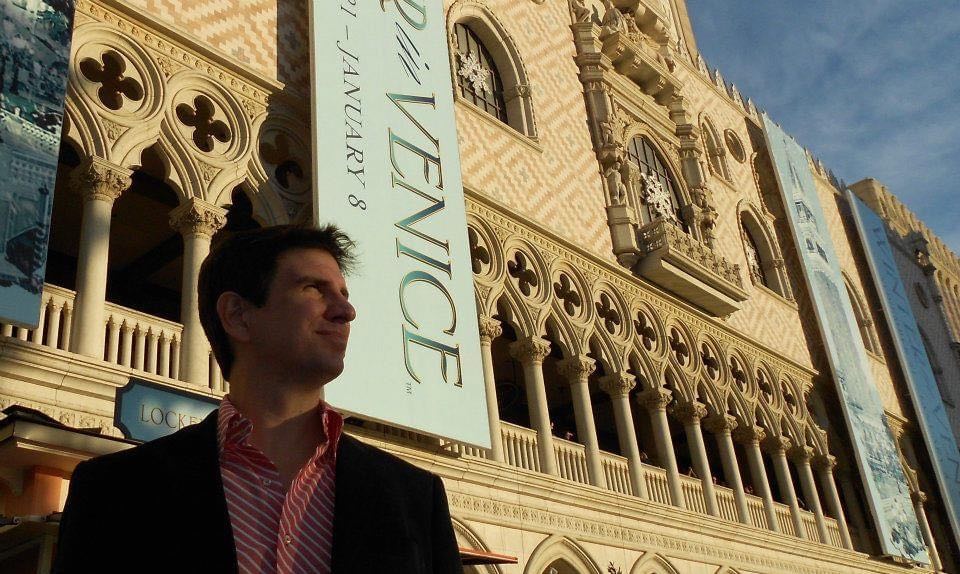


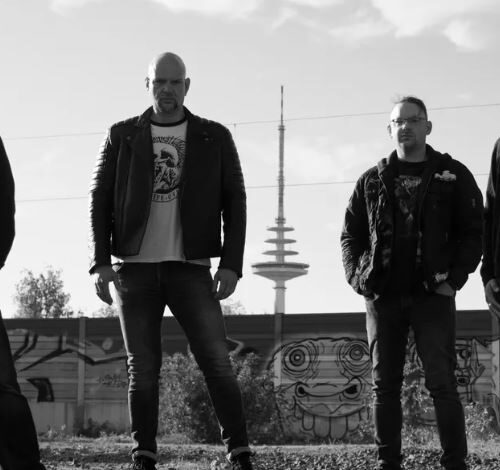

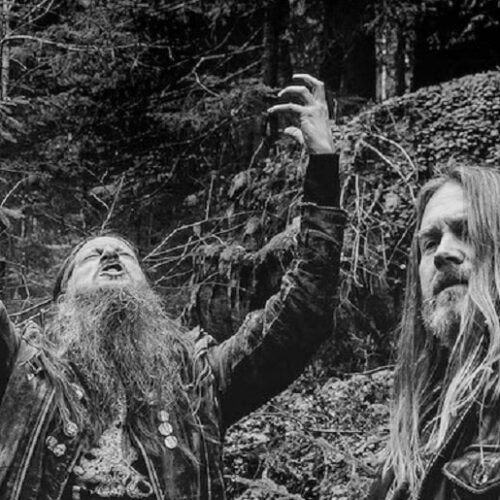
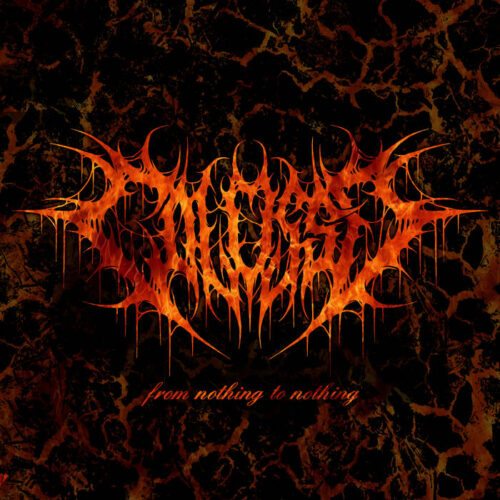
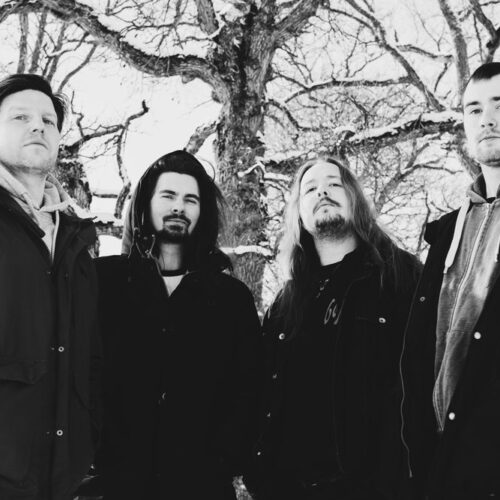
Interesting interview!
Yeah Marco has been around in what seems like forever and it was a pleasure interviewing him
Chris Forbes
Thanks for this interview!
It was a pleasure doing this with him
Chris Forbes
Cool interview as always, we are looking for more!